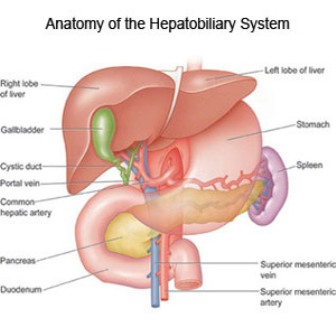Hepatobiliary Surgery
hepatobiliary surgery View our patient care site — ETSU Health Care
Request an Appointment via our Patient Portal
Hepatobiliary surgery consists of the general surgical treatment for benign and malignant diseases of the liver, pancreas, gallbladder, and bile ducts. These are among the most challenging and complex surgical procedures performed in General Surgery and require a high degree of expertise and skill.

Types of Diseases
Liver Tumors
Tumors of the liver can be either primary liver cancers or liver metastases from other sites in the body. The most common tumor to metastasize to the liver is colorectal cancer. Another type of tumor that metastasizes to the liver is a neuroendocrine tumor of the gastrointestinal tract.
Pancreas Tumors
Cancers of the pancreatic duct are the most common but patients can develop neuroendocrine tumors of the pancreas as well as cystic tumors that can either be precancerous or malignant upon presentation.
Gallbladder and bile duct Tumors
These types of cancers are relatively rare but when found can require extensive general
surgery to treat.
Diagnosis
Liver tumors typically present with nonspecific abdominal symptoms and are found with CT or MRI scan of the abdomen. Sometimes a biopsy may be needed to confirm the diagnosis but often just the imaging and blood work can determine the exact type of liver tumor.
Pancreas, gallbladder, and bile duct tumors can present with painless jaundice or also vague abdominal symptoms. They also require CT or MRI imaging make the initial diagnosis. Sometimes other tests such as endoscopy may be needed to make the diagnosis or to relieve bile duct obstruction due to tumor.